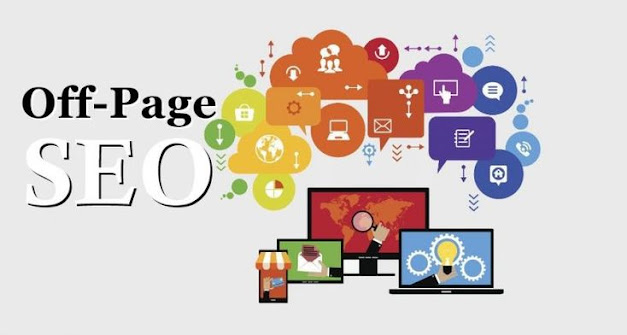Off-Page SEO Guide 2025: Key Components, Importance, and FAQs

Strong 8k brings an ultra-HD IPTV experience to your living room and your pocket.
In the ever-evolving landscape of search engine optimization (SEO), achieving top rankings requires a holistic approach that extends beyond the confines of your website. While on-page and technical SEO form the foundational pillars, off-page SEO acts as the crucial catalyst, amplifying your website's authority, trust, and visibility in the vast digital ecosystem. This guide will delve into the key components, importance, and frequently asked questions surrounding off-page SEO in 2025, providing a step-by-step understanding for users.
✍️ Link building in 2025 isn’t about quantity—it’s about quality. Our article on off-page SEO explains how to acquire trustworthy backlinks through ethical strategies while avoiding spammy shortcuts that risk penalties.
What Is Off-Page SEO?
At its core, off-page SEO encompasses all the actions taken outside of your own website to influence your search engine rankings. Think of it as building your website's reputation and credibility across the internet. Search engines like Google consider these external signals as endorsements or votes of confidence in your website's value and authority. These signals often come from other reputable websites, social media platforms, online directories, and various other web properties.
Unlike on-page SEO, where you have direct control over elements like content, keywords, and site structure, off-page SEO involves earning these positive signals through various strategies and interactions across the web. It's about demonstrating to search engines that your website is a trustworthy and valuable resource worthy of higher rankings.
Why Is Off-Page SEO Important?
Off-page SEO plays a pivotal role in achieving sustainable and impactful search engine rankings for several critical reasons:
Builds Domain Authority and Trust: High-quality backlinks from authoritative websites act as strong endorsements, significantly boosting your website's domain authority (DA) or domain rating (DR). Search engines interpret these backlinks as a testament to your content's credibility and trustworthiness, leading to improved rankings.
Enhances Brand Visibility and Recognition: Effective off-page SEO strategies, such as social media engagement and online mentions, increase your brand's visibility across various online platforms. This broader exposure can lead to increased brand recognition, recall, and ultimately, more traffic to your website.
Drives Referral Traffic: While the primary goal of SEO is often organic search traffic, off-page efforts like guest blogging and directory listings can also drive valuable referral traffic from other relevant websites. These visitors are often highly targeted and more likely to convert.
Increases Social Signals: While the direct impact of social media signals on rankings is debated, active and engaging social media presence can indirectly influence SEO. It can lead to increased content visibility, more backlinks, and greater brand awareness, all of which contribute to better rankings.
Improves Online Reputation: Positive reviews, mentions, and a strong presence on reputable online platforms contribute to a positive online reputation. This can influence user perception and click-through rates from search results.
Provides a Competitive Edge: In competitive niches, strong off-page SEO can be the differentiating factor that elevates your website above the competition. Earning high-quality backlinks and building a strong online presence takes time and effort, creating a significant barrier to entry for competitors.
How Does Off-Page Differ From On-Page SEO?
To clearly understand off-page SEO, it's essential to distinguish it from on-page SEO:
On-Page SEO: Involves enhancing various components of your own website to boost its visibility and ranking on search engines. This includes optimizing 1 content with relevant keywords, improving website speed, ensuring mobile-friendliness, optimizing meta descriptions and title tags, internal linking, and improving user experience.
Off-Page SEO: Focuses on activities outside your website to build authority and trust. This involves earning backlinks, managing your online reputation, engaging on social media, and securing mentions on other websites. You have indirect control over these factors, as they rely on external entities.
In essence, on-page SEO ensures your website is search engine friendly and provides a good user experience, while off-page SEO signals to search engines that your website is valuable and trustworthy based on external validation. Both are crucial and work synergistically for optimal SEO performance.
Key Components of Off-Page SEO
Effective off-page SEO involves a multifaceted approach encompassing various strategies. Here are some key components for 2025:
1. Link Building: This remains a cornerstone of off-page SEO. However, the focus has shifted dramatically from quantity to quality. High-quality backlinks from authoritative, relevant websites are far more valuable than numerous low-quality links. Effective link-building strategies include:
- Earning Editorial Backlinks: Creating valuable, high-quality content that other websites naturally want to link to as a resource.
- Guest Blogging: Writing valuable articles for other relevant websites in your industry, with a link back to your site in the author bio or within the content (when editorially appropriate and compliant with guidelines).
- Broken Link Building: Identifying broken links on other websites and offering your relevant content as a replacement.
- Resource Page Link Building: Identifying resource pages on authoritative websites and suggesting your valuable content for inclusion.
- Skyscraper Technique: Finding high-ranking content, creating a significantly better version, and then reaching out to those linking to the original content.
Important Note: Avoid manipulative link-building tactics like buying links or participating in private blog networks (PBNs), as these can lead to penalties from search engines.
2. Online Reputation Management (ORM): Managing how your brand is perceived online is crucial. This involves:
- Monitoring Online Mentions: Tracking mentions of your brand, products, or services across the web.
- Responding to Reviews: Actively responding to both positive and negative reviews on platforms like Google My Business, Yelp, and industry-specific review sites.
- Building a Positive Brand Image: Engaging in positive online interactions and addressing any negative feedback constructively.
3. Social Media Marketing: While not a direct ranking factor, a strong social media presence can significantly contribute to off-page SEO by:
Increasing Content Visibility: Sharing your content on relevant social media platforms expands its reach and increases the chances of earning backlinks and mentions.
Driving Engagement: High engagement on social media can lead to greater brand awareness and potentially more organic traffic.
4. Building Brand Authority: Establishing yourself as a thought leader on social media can enhance your brand's credibility.
Brand Mentions: Even non-linked mentions of your brand on other reputable websites can positively influence search engine perception. Actively seeking and nurturing these mentions can contribute to your overall off-page authority.
5. Local SEO (for local businesses): This involves specific off-page strategies to improve visibility in local search results, including:
- Google My Business (GMB) Optimization: Claiming and optimizing your GMB listing with accurate and complete information.
- Local Citations: Listing your business on relevant online directories and citation sites (e.g., Yelp, Yellow Pages).
- Local Link Building: Earning backlinks from local businesses and organizations.
- Review Management: Encouraging and managing reviews on your GMB profile and other relevant platforms.
Content Marketing and Outreach: Creating valuable, shareable content and actively promoting it to relevant audiences and influencers can naturally lead to backlinks, mentions, and social shares.
Public Relations (PR): Online PR efforts, such as press releases and media outreach, can result in valuable mentions and backlinks from reputable news outlets and media websites.
Influencer Marketing: Collaborating with relevant influencers in your niche can expose your brand to a wider audience, potentially leading to backlinks and brand mentions.
FAQs for Off-Page SEO
To further clarify the intricacies of off-page SEO, let's address some frequently asked questions:
Q: How long does it take to see results from off-page SEO?
A: Off-page SEO is a long-term strategy. It takes time to build authority and earn high-quality backlinks. You might start seeing some initial benefits within a few months, but significant and sustainable results can take 6-12 months or even longer, depending on your industry, competition, and the effort invested.
Q: How do I measure the success of my off-page SEO efforts?
A: Several metrics can help you track the progress of your off-page SEO:
- Domain Authority (DA) or Domain Rating (DR): These are proprietary metrics (from Moz and Ahrefs, respectively) that indicate the overall strength of your website's backlink profile.
- Number and Quality of Backlinks: Tracking the quantity and quality of backlinks pointing to your website is crucial. Focus on backlinks from high-authority, relevant domains.
- Referral Traffic: Monitor the traffic coming to your website from other websites.
- Brand Mentions: Track how often your brand is mentioned across the web, even without a link.
- Social Engagement: Monitor your social media metrics, such as likes, shares, and comments.
- Search Engine Rankings: Ultimately, the improvement in your target keyword rankings is a key indicator of off-page SEO success.
Q: What are some common off-page SEO mistakes to avoid?
A: Avoid these common pitfalls:
- Buying Backlinks: This is a black-hat tactic that can lead to severe penalties.
- Participating in Link Farms or PBNs: These are networks of low-quality websites created solely for link building and are easily detected by search engines.
- Excessive Link Exchanges: Reciprocal linking should be done naturally and sparingly.
- Ignoring Your Online Reputation: Failing to monitor and manage your online reputation can negatively impact user trust.
- Spamming Comments or Forums for Links: This is an ineffective and often penalized tactic.
Q: Is social media engagement a direct ranking factor?
A: While Google has stated that social media likes and shares are not direct ranking factors, a strong social media presence can indirectly influence SEO by increasing content visibility, driving traffic, and potentially leading to more backlinks and brand mentions.
Q: How important is local off-page SEO for a business with a physical location?
A: Local off-page SEO is extremely important for businesses with a physical location. Optimizing your Google My Business profile, acquiring local citations, and earning local backlinks are crucial for ranking higher in local search results and attracting local customers.
Q: How often should I focus on off-page SEO?
A: Off-page SEO is an ongoing process. Building authority and earning trust takes consistent effort. Regularly dedicate time to link building, reputation management, social media engagement, and other off-page activities.
Conclusion:
Off-page SEO in 2025 remains a vital part of any effective SEO strategy. By focusing on building high-quality backlinks, maintaining a strong online reputation, engaging meaningfully on social media, and using other ethical off-page techniques, you can significantly boost your website’s authority, visibility, and search engine performance. Quality and relevance should always be the foundation of your off-page efforts.
For those looking to master these techniques, enrolling in a Digital marketing training course in Noida, Delhi, Gurgaon, and Mumbai and other country city can provide the essential knowledge and skills needed to succeed. By understanding and consistently applying these key off-page SEO practices, you can create a powerful and lasting online presence that drives sustainable, long-term organic growth for your business.
Note: IndiBlogHub features both user-submitted and editorial content. We do not verify third-party contributions. Read our Disclaimer and Privacy Policyfor details.







